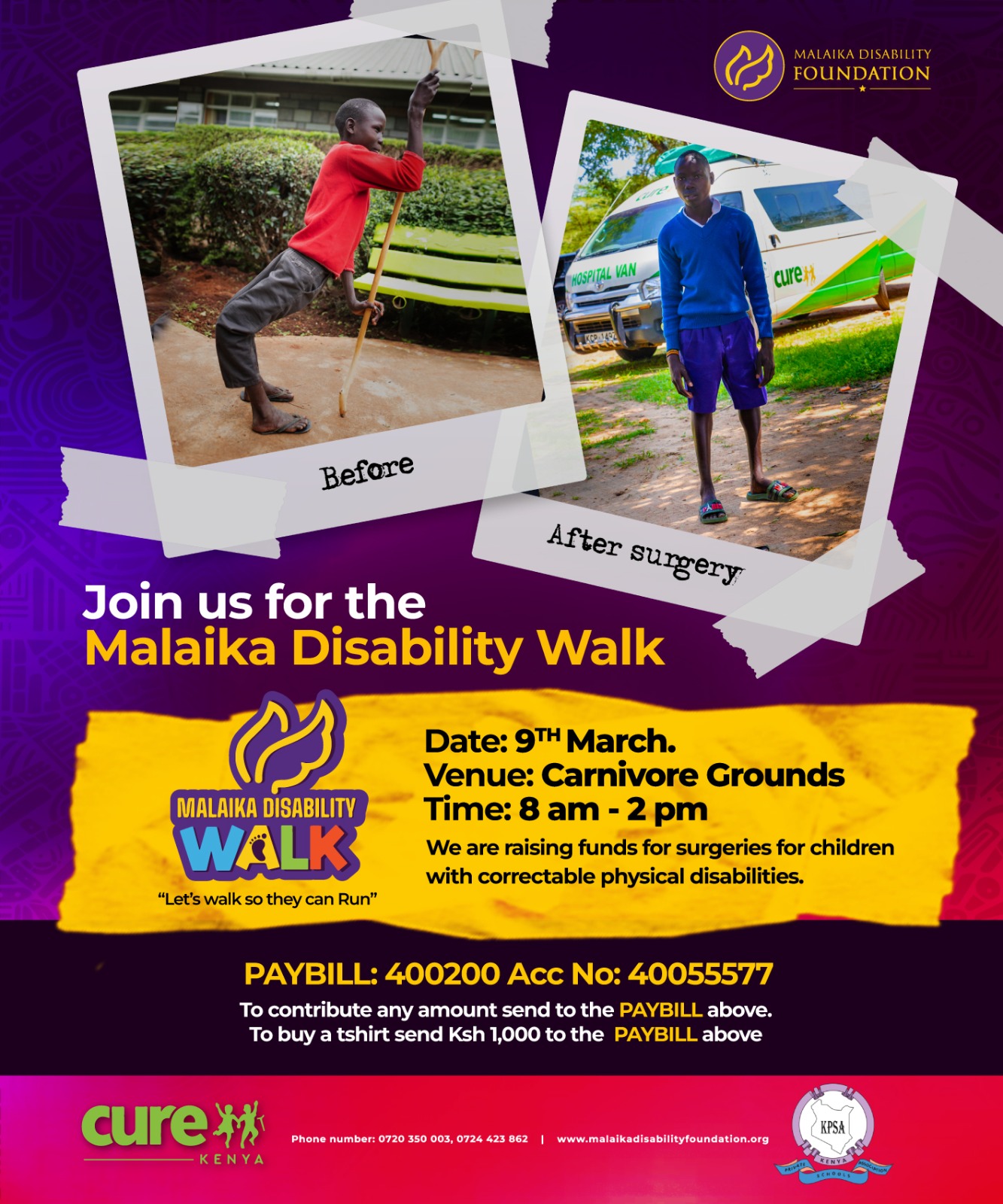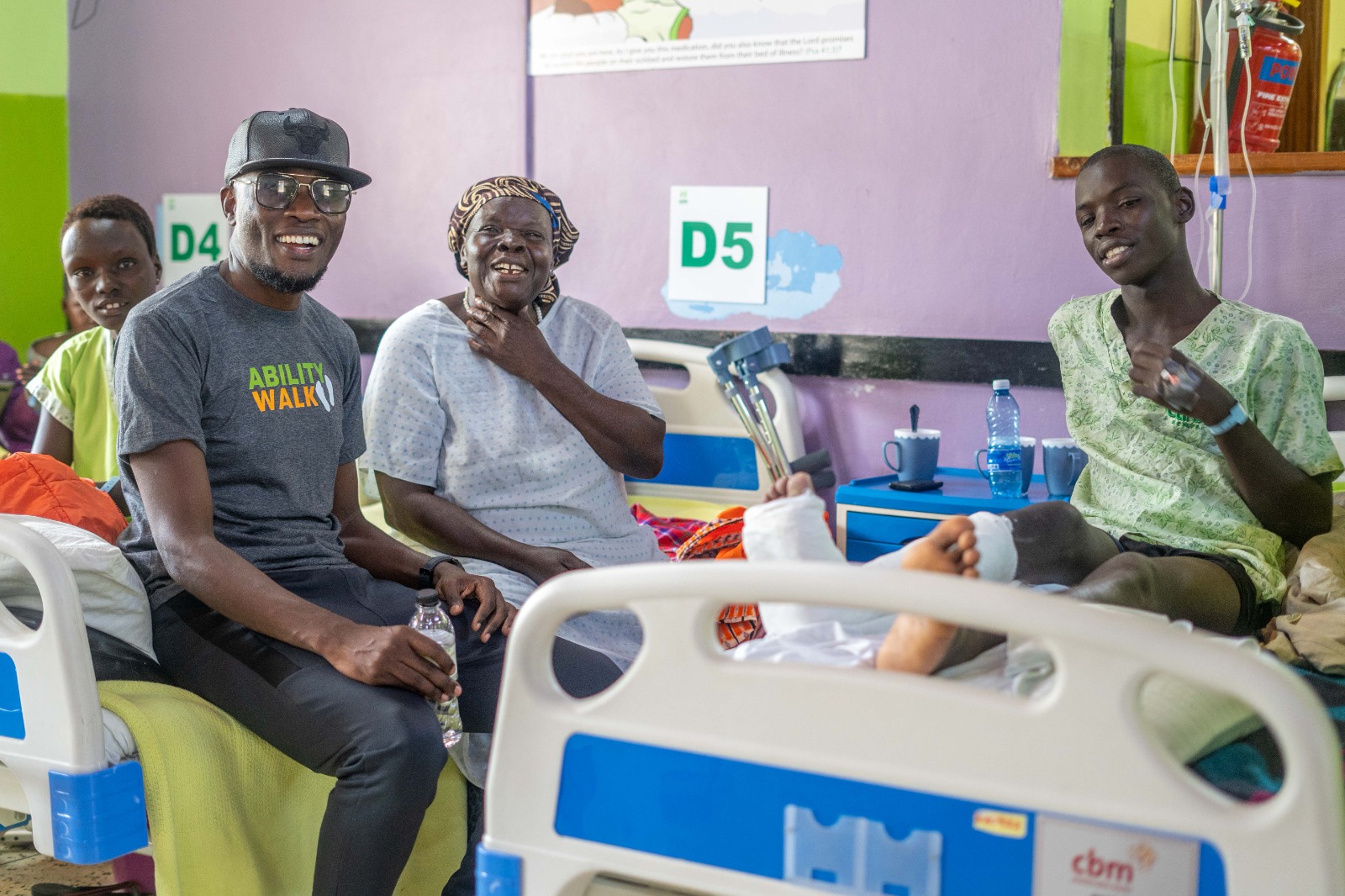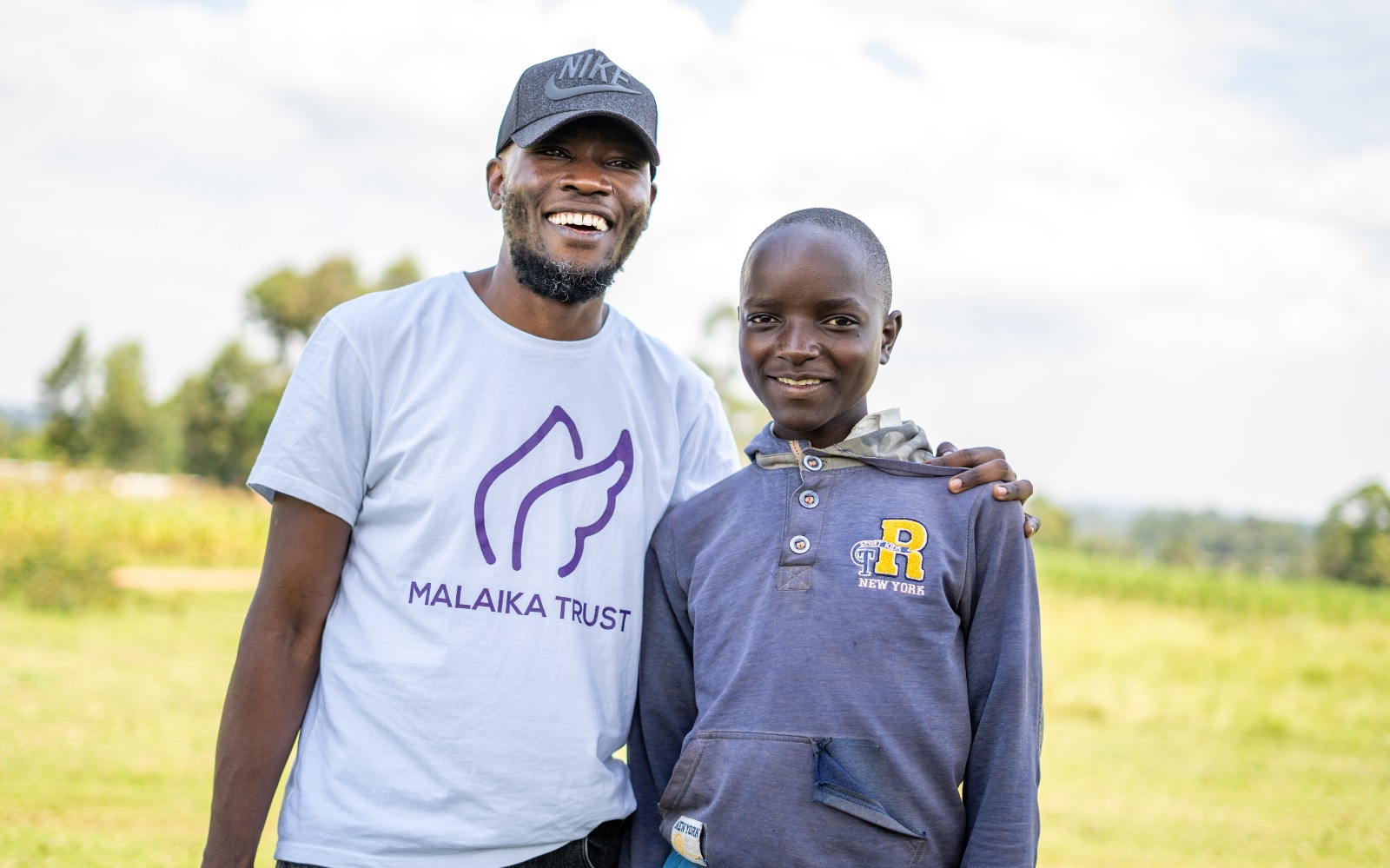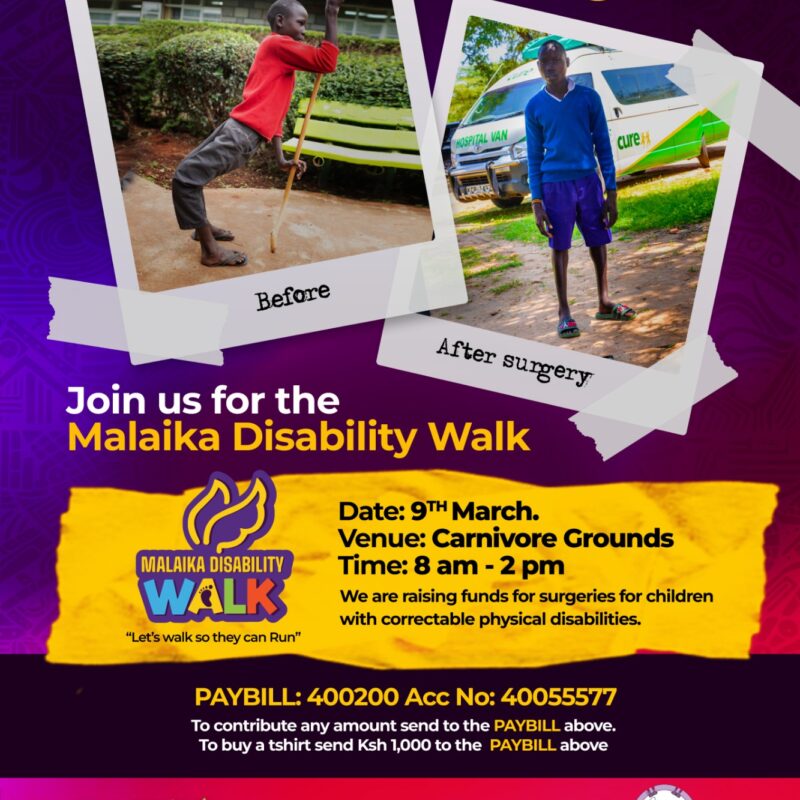Malaika Disability Walk is not just a stroll; it’s a powerful stride towards a brighter future.
With the rallying cry of “Let’s walk so that they can run,” this annual event in Kenya is more than just a charity walk—it’s a mission to transform lives.
The walk is a spirited endeavor to create awareness, highlighting the plight of PWDS
and raise funds for corrective surgeries at Cure Hospital in Kijabe, where the dreams of children living with disabilities can be realized.
Participants lace up their shoes not just for the steps they take, but for the miles they cover in breaking down barriers and fostering inclusivity.
Malaika Disability Walk is a celebration of resilience and an embodiment of the belief that every stride matters. With each footfall, the event echoes the commitment to ensuring that no child’s potential is limited by a disability.
Joining this walk isn’t just an act of charity; it’s a pledge to be a part of a movement that aims to rewrite the narratives of those living with disabilities in Kenya.
So, step into the rhythm of purpose, and let the Malaika Disability Walk be a testament to the power of unity, compassion, and the unwavering belief that every child deserves the chance to run towards a brighter, more inclusive future.
The initiative aims to solve ;
Inadequate Healthcare Services and Rehabilitation:
- Limited accessibility to healthcare facilities, lack of specialized equipment, and a shortage of trained medical professionals who can address their specific needs further exacerbate their challenges. Additionally, rehabilitation services are often insufficient or non-existent, making it difficult for individuals with disabilities to regain functional abilities and participate fully in society.
Inaccessibility of Public Infrastructure and Transportation:
- Most public spaces, buildings, and transportation systems do not accommodate their mobility needs, making it challenging for them to move independently, access essential services, and participate in social activities. This lack of accessibility further isolates individuals with disabilities and restricts their freedom of movement.
Limited Access to Education and Employment Opportunities:
- Many schools lack inclusive infrastructure, resources, and trained teachers to support their needs. This limits their educational development and hampers their chances of securing gainful employment, perpetuating a cycle of poverty and exclusion.
Social Stigma and Discrimination:
- Negative attitudes and misconceptions about disabilities contribute to exclusion from social activities, employment, and community engagement. This discrimination impacts their self-esteem, mental well-being, and overall quality of life thus hinders their integration into society.
Limited Access to Assistive Devices and Technologies:
- Many individuals living with disabilities in Kenya struggle to access assistive devices and technologies that can enhance their independence and improve their quality of life. The high cost of these devices, coupled with limited availability and lack of awareness, creates significant barriers for individuals who rely on them for mobility, communication, and daily activities.
Target Partners
The Disability Walk aims to engage primary and high school students from renowned institutions to drive traction.
The event provides an excellent opportunity to connect with a diverse and influential audience, fostering a sense of social responsibility and empathy among the younger generation.
- Learning Institutions
- Corporates and individuals championing change.
- Government of Kenya.
- Persons Abled differently.
- Kenyan and Non-Kenyan Citizens





